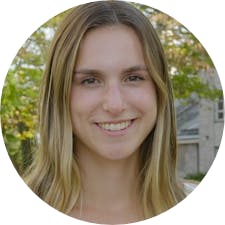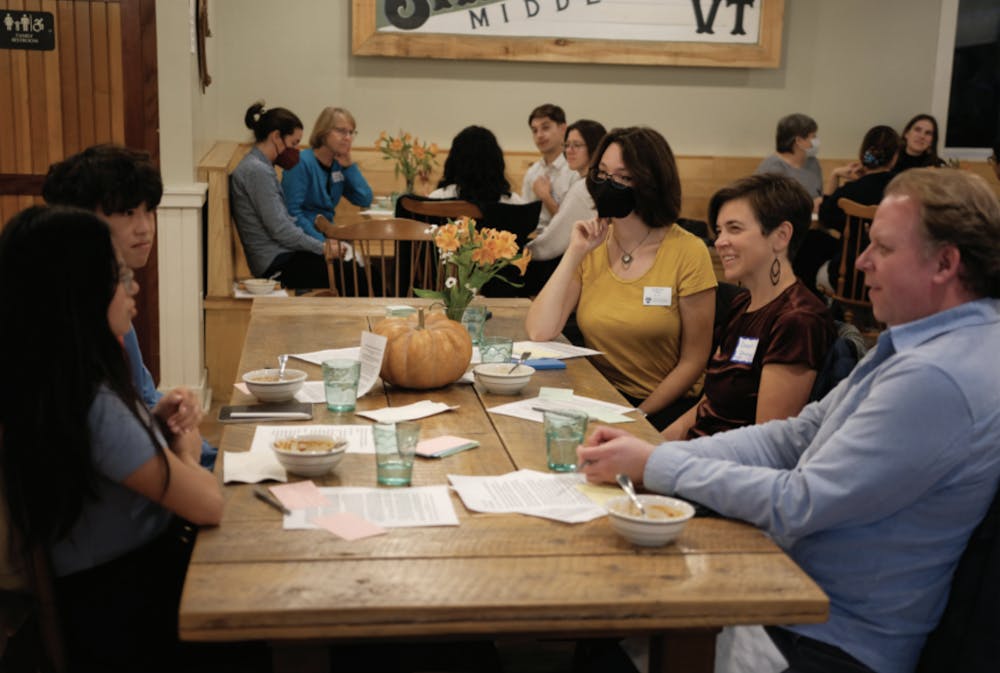The Kathryn Wasserman Davis Collaborative in Conflict Transformation initiative is offering its course “Conflict Transformation Skills” for the second year in a row this J-Term. The course provides an opportunity for students to learn and practice skills as well as access resources related to managing and transforming conflicts of different types and magnitudes. Courses that have been offered by the initiative over the past four semesters have been taught by faculty across a variety of disciplines, including mediation, Political Science, Education Studies and Dance.
“The transformation collaborative is a very exciting opportunity across the big, global Middlebury institution to infuse knowledge and skills for engaging in constructive conflict into the lives of our students,” said Sarah Stroup, director of the Davis Collaborative in Conflict Transformation and professor of political science.
Middlebury as an institution already possesses a capacity for conflict analysis given the faculty who are subject matter experts in a variety of conflicts and disciplines, but what the initiative provides is a transferable skill set to take this theory into practice, according to Stroup.
“What we’re able to expand with conflict transformation work is attention to the structures, resources and behaviors that help make conflicts less destructive. It's been really exciting as a political science professor to not just study war, but to think about how to build peace,” she said. “We have learned from global experts in conflict management that the sorts of skills that are necessary to transform the most intractable conflicts at the highest levels are skills that we can practice right here in our interpersonal relationships.”
Sascha Leidecker ’24.5 took the Conflict Transformation Skills course during J-Term last year, and spoke about the value of the listening skills the class taught her. The practice of looping — repeating back what someone has said in different words to confirm your understanding — has been a tool Leidecker has found helpful in a variety of situations.
“Going out into the world right now when there’s conflict everywhere and everything is so polarized, you have to have a side,” Leidecker said. “If you learn the skills for just how to have a conversation, how to listen to someone who has a different opinion than you in school, you can take that anywhere outside of Middlebury.”
Leidecker added that she has learned how the skill can be applied more broadly than she originally thought. “If I'm in a fight with a friend, or I’m disagreeing with my parents or with a professor or I'm trying to understand something more clearly,” she said. “Making sure you're understanding the other person's perspective before you even try to engage with them and tell your own opinion.”
Listening to elevate understanding is a skill Leidecker feels will be invaluable both during and beyond her time at Middlebury.
Lillian Prime ’24.5 took a half-credit iteration of the course offered by the collaborative and taught by Stroup in the fall of 2023.
“The course gave students strategies to better understand many different types of conflicts ranging from interpersonal to global conflicts,” Prime wrote in an email to The Campus.
Prime was then inspired to enroll in “Restorative Justice Practice and Theory” this J-Term following her experience in the conflict transformation class.
Just as their instructors come from a wide array of academic disciplines, students come to conflict transformation programming from a variety of academic backgrounds, according to Stroup.
“It's been really exciting to see the diversity of students who are enrolled in the class, from math majors to English to neuroscience to international politics and economics,” Stroup said.
She emphasized that courses have been pilot efforts by the collaborative. While classes do not count for major or minor requirements, faculty adjust curriculum based on student feedback about what is valuable.
Integrating interdisciplinary offerings into the course has been key for the initiative. Stroup cited work with Visiting Assistant Professor of Dance Lida Winfield as one such opportunity.
“One of the practice opportunities that we offered this year was a workshop in the dance studio. And as a political scientist, I don't usually stand at the front of the room and think about the embodied experience in the classroom,” Stroup said, adding that dance allows students to understand and experience the role of nonverbal communication in conflict experiences.
Stroup emphasized the importance of providing opportunities for repeated practice of the skills developed in conflict transformation. “New skills take time to sink in,” Matt Manahan ’24 wrote in an email to the Campus.
The collaborative has been intentional in gathering faculty from a variety of backgrounds and giving students opportunities to practice and learn about themselves. Stroup said that so far, mediators as well as professors of political science have taught courses on conflict transformation.
Student feedback during pilot classes has been helpful in directing curriculum development. “This is only our second year, so if there are parts of the work that we’re doing that need improvement, wonderful. We just need the feedback, right? It's about what is really serving students' interests well,” she said.
Stroup added that students cited awareness of their own conflict style and attention to listening have been two of the most impactful teachings of the courses.
Manahan said when he took the J-Term course last year, students took an assessment to learn their own conflict style, which helped him understand his own psychological reactions. “Knowing this has increased my self-awareness and enabled me to transform interpersonal conflicts in constructive ways,” Manahan wrote.
Leidecker mentioned that a bigger emphasis on communication and public speaking would be a valuable additional focus to the course.
“After I took the class, I remember thinking we did so much on listening, and not as much as I would have liked on how you start a hard conversation. How do you say what you mean in a way that does not ostracize the person that you're talking to or make them feel uncomfortable or unsafe?” she said.
Stroup also shared her enthusiasm for the challenge of stepping away from studying individual conflicts to focus on the transferable skills that can be taught and learned. The course now incorporates multiple sessions about communication in conflict.
“I have been so pleased to have the opportunity to engage in dialogue with faculty across the college to explore how we understand and define conflict and its transformative potential in the context of our disciplines,” wrote Visiting Assistant Professor of Education Melissa Hammerle in an email to The Campus.
Hammerle looks forward to teaching “Conflict Transformation: Mindfulness Skills as Educational Praxis” this coming spring.
“In my teaching, contemplative mindfulness pedagogies intersect with these domains by engaging in learning practices that explore critical self-awareness and self-reflection, connected engagement, mindful attending, perspective shifting, first-person inquiry, all held in an intersubjective learning space,” she wrote. “This work has been enormously meaningful.”

Olivia Mueller '24 (she/her) is a News Editor.
Previously an Arts and Culture editor, Olivia is an International Politics and Economics major with a Spanish minor. Outside of the Campus, she is a spin instructor for YouPower, an avid runner and hiker, and a member of the Middlebury Mischords a cappella group.




